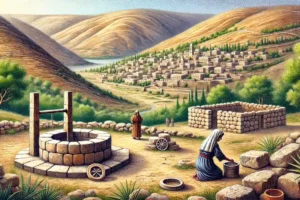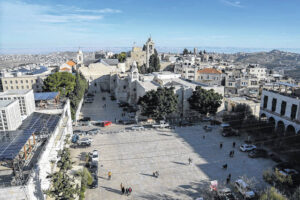
Antioch: The Cradle of Early Christianity
Antioch, one of the most significant cities in early Christian history, played a crucial role in the spread of Christianity and the establishment of the early church.
- Location: Ancient city in present-day Turkey, near the Orontes River.
- Founding: Established by Seleucus I Nicator in the 4th century BC.
- Significance: Known as the “Cradle of Christianity” due to its early and influential Christian community.
- Key Figures: Barnabas, Paul, Peter, and the first Gentile converts.
- First Called Christians: The disciples were first called Christians in Antioch (Acts 11:26).
- Missionary Base: Served as the launching point for missionary journeys of Paul.
- Council of Jerusalem: Delegates from Antioch played a key role in the early church’s decisions on Gentile inclusion (Acts 15).
- Scriptural References: Acts 11:19-30, Acts 13:1-3, Galatians 2:11-14.
Historical and Cultural Context
Antioch was founded by Seleucus I Nicator, one of Alexander the Great’s generals, around 300 BC. Located near the Orontes River in what is now modern-day Turkey, Antioch quickly grew into a major center of commerce and culture. By the time of the New Testament, it was the third-largest city in the Roman Empire, known for its diverse population and vibrant intellectual life.

Role in Early Christianity
Antioch holds a special place in Christian history for several reasons:
- Early Christian Community:
- Following the persecution that arose after Stephen’s martyrdom, many Christians fled to Antioch. Here, they began preaching to both Jews and Greeks, leading to a significant number of Gentile converts (Acts 11:19-21).
- Barnabas was sent from Jerusalem to Antioch to oversee the new church. Recognizing the magnitude of the work, he brought Paul from Tarsus to help (Acts 11:22-26).
- First Called Christians:
- The term “Christian” was first used in Antioch to describe the disciples of Jesus (Acts 11:26). This designation highlighted the distinct identity of the followers of Christ, separate from Jewish traditions.
- Missionary Activities:
- Antioch served as the launching point for missionary journeys of Paul. The church in Antioch, characterized by its diversity and spiritual fervor, commissioned Paul and Barnabas for their first missionary journey (Acts 13:1-3). see First Journey of Paul
- This commissioning marked the beginning of a deliberate and organized effort to spread the Gospel to the Gentile world, setting a pattern for future missions.
- Council of Jerusalem:
- Antioch was central in the early church’s debates over Gentile inclusion. The church faced a significant controversy regarding whether Gentile converts needed to observe Jewish laws.
- Paul and Barnabas were sent from Antioch to Jerusalem to discuss this issue, leading to the Council of Jerusalem. The council’s decision, which affirmed that Gentiles did not need to follow all Jewish customs, was pivotal in defining the inclusive nature of the Christian faith (Acts 15:1-31).
- Peter and Paul Conflict:
- Antioch was also the site of a notable confrontation between Paul and Peter regarding the treatment of Gentile Christians. Paul publicly rebuked Peter for withdrawing from eating with Gentiles out of fear of criticism from Jewish Christians, emphasizing the principle of equality in Christ (Galatians 2:11-14).

Theological Insights
Several key theological themes emerge from the role of Antioch in early Christianity:
- Inclusivity of the Gospel: Antioch exemplifies the breaking down of ethnic and cultural barriers, highlighting the universality of the Christian message.
- Community and Mission: The church in Antioch demonstrates the importance of a vibrant, mission-oriented community in spreading the Gospel.
- Leadership and Discipleship: The collaboration of leaders like Barnabas and Paul in Antioch underscores the value of teamwork and mentorship in ministry.
- Faith and Practice: The events in Antioch reflect the early church’s struggle to balance faith and practice, particularly in integrating Gentile believers.
Conclusion
Antioch’s legacy as the cradle of early Christianity is profound. It was a center of evangelism, theological development, and community life that significantly shaped the early church. The city’s diverse and dynamic Christian community played a crucial role in the spread of the Gospel and the inclusion of Gentiles, setting foundational principles for the global mission of the church. Antioch’s story continues to inspire believers with its example of faith, inclusivity, and missionary zeal.



